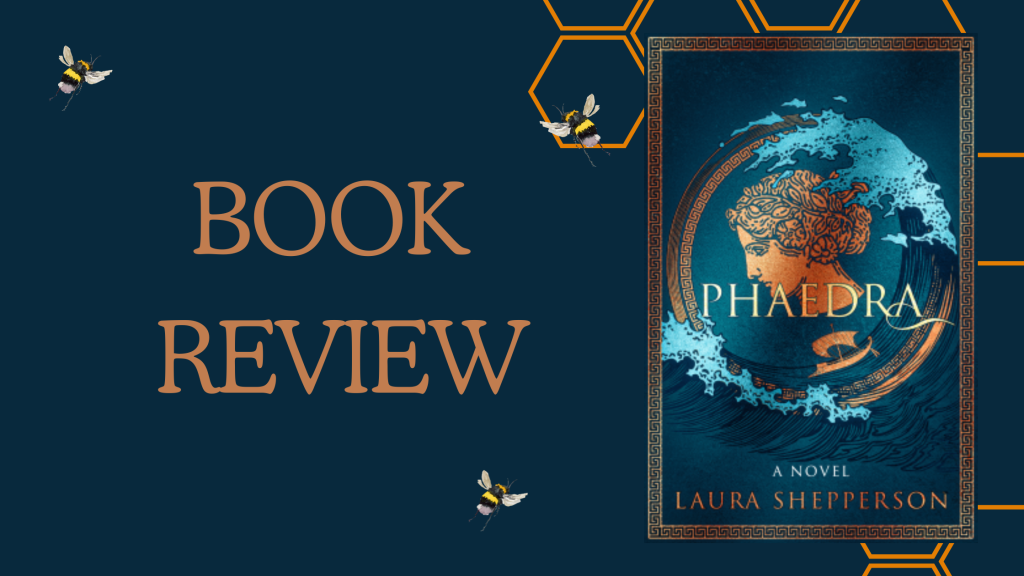Title: Phaedra
Author: Laura Shepperson
Length: 541 pages
Genre: Mythology; Fantasy; Historical Fiction; retelling
Series: N / A
Overall Rating: 9 / 10
Overall Thoughts
*Trigger warning* Sexual Assault, Rape and more.
I adored this different perspective of a commonly known Greek myth. Hearing the story from Phaedra’s point of view, along with many others who knew her through the story was a refreshing reminder that things are not always what they seem.
After the death of her beloved brother, naive Phaedra decides to marry Theseus her brother’s killer, in order to witness the revenge (that she believes) the Gods will have on him. Despite being the Queen, she is treated as a nobody in her new kingdom. Over time, the only thing catching her eye is her stepson Hippolytus, who worships the Goddess Artemis. Being the Goddess of the hunt and virginity, Hippolytus claims to align with these views. It doesn’t take long for Phaedra to learn the cruelty of the men in the Kingdom and that no woman is safe from their sexual harassment. There are many arguments to be made as to why Phaedra didn’t believe this would happen to her. Whether it be her royal status, her lack of sexual relations with her husband, or the belief that she was simply present as a witness to the eventual punishments the Gods would bring. Inevitably she is assaulted by Hippolytus and becomes pregnant with his child, which sets off a chain reaction for an overwhelming political debate from the men in court to the women fighting from behind closed doors.
The storyline of this novel and how it entangles with the traditional story of Phaedra seducing Hippolytus really left me thinking about how many perspectives have been lost over the years. This is an emotional read but a good one that leaves you questioning the ways of the world.
I would recommend this book to anyone who enjoys mythology, considers themselves feminist or simply needs a reminder that stories are easily twisted to benefit those who have power. Please keep in mind that this is not a feel good story and should be read when one is of a stable mindset.
“I hated being indecisive. And I hated waiting. I am a woman of action, not a philosopher. I know that history will judge me, but history is written by men. I did not want to be at any man’s mercy, not again.” -Medea
Page #95
Illustration Discussion:
Phaedra is covered with a beautiful blue cover with the Greek Meander bordering the edges, with a vase painting circle (dead centre) of the cover with Phaedra’s head. Surrounding that centre decal is crashing waves and a ship. The ship depicts the physical and emotionally journey that Phaedra will undergo. The cover does keep the contents of the myth in suspense while giving readers a elegant cover.
Spoilers Bee-ware
You have been swarmed. Reading past this post means that you understand that you might spoil the book for yourself.
Stats + Facts
There are 8 different perspectives in this novel. Agneta had 1 chapter, Kandake has 6 chapters, Trypho has 6 chapters, Helia has 1, The Bard has 1, Xenethippe has 4, Medea has 7 and Phaedra herself has 16.

